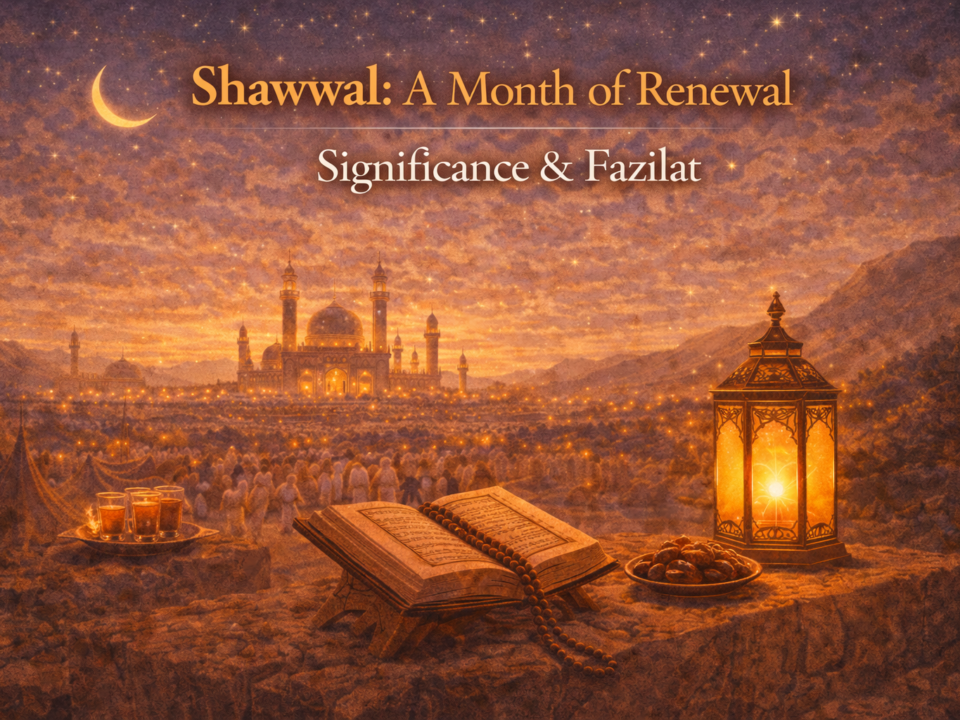The Revelation of the Injil to Isa (AS) on the 12th of Ramadan
The 12th of Ramadan is a day of great significance in Islamic history, as it marks the believed revelation of the Injil (Gospel) to Isa (AS), known as Jesus in Christianity. Isa (AS) is a highly esteemed prophet in Islam, and the Injil is one of the divine scriptures mentioned in the Quran. In this blog post, we will explore the historical context, significance, and lessons from the revelation of the Injil to Prophet Isa (AS) on the 12th of Ramadan.
The Historical Context
The story of the revelation of the Injil to Prophet Isa (AS) is an essential part of both Islamic and Christian traditions. While there are differences in the beliefs about Isa (AS) between the two religions, there is a shared recognition of his prophethood and mission as a messenger of God.
Key Aspects of the Revelation:
- The Divine Message:According to Islamic tradition, the Injil was revealed to Prophet Isa (AS) as a divine message containing guidance, wisdom, and the teachings of monotheism. It was meant to convey God’s message to the people of his time.
- Miracles and Healing:Isa (AS) is renowned for his miracles, including healing the sick and raising the dead, all of which he performed with the permission of Allah.
- The Parables:The Injil includes a collection of parables and stories that contain moral and spiritual lessons, emphasizing the importance of compassion, forgiveness, and righteousness.
- Crucifixion and Ascension:Islamic tradition differs from Christian belief in that it asserts that Isa (AS) was not crucified but rather was raised to the heavens by Allah. His return is anticipated in Islamic eschatology.
Significance and Lessons
The revelation of the Injil to Prophet Isa (AS) on the 12th of Ramadan carries several significant lessons and principles that resonate today:
- Divine Guidance:The revelation of the Injil underscores the importance of divine guidance in human affairs. It serves as a reminder that Allah SWT provides guidance to humanity through chosen prophets and scriptures.
- Compassion and Healing:Isa (AS) is renowned for his compassion and his ability to heal the sick. His actions emphasize the importance of empathy and using one’s abilities to alleviate suffering.
- Moral and Spiritual Teachings:The parables and teachings found in the Injil offer valuable moral and spiritual lessons that are relevant to people of all faiths, emphasizing values such as love, forgiveness, and humility.
- Monotheism:Both Islam and Christianity share the belief in the oneness of God. The Injil reinforces the concept of monotheism and the worship of the one true God.
- Resurrection and Eschatology:Islamic eschatology holds that Isa (AS) will return at the end of times as a sign of the Day of Judgment, emphasizing the belief in the ultimate accountability of all individuals.
Conclusion
The revelation of the Injil to Prophet Isa (AS) on the 12th of Ramadan is a momentous event in Islamic history, signifying divine guidance, moral teachings, and the message of monotheism. It underscores the importance of seeking divine wisdom and using one’s abilities to alleviate the suffering of others. As Muslims commemorate this event, it is an opportunity to reflect on the enduring relevance of these principles and their role in shaping a just and virtuous society. The revelation of the Injil to Isa (AS) serves as a timeless reminder of the divine wisdom and guidance that continues to illuminate the path of believers, transcending religious boundaries and uniting humanity in the pursuit of righteousness and monotheism.
عنوان: 12 رمضان المبارک کو انجیل عیسیٰ علیہ السلام پر نازل ہونا
تعارف
12 رمضان المبارک اسلامی تاریخ میں بہت اہمیت کا حامل دن ہے، کیونکہ یہ عیسیٰ (ع) پر انجیل (انجیل) کے نزول کی علامت ہے، جسے عیسائیت میں عیسیٰ کے نام سے جانا جاتا ہے۔ حضرت عیسیٰ (ع) اسلام میں ایک انتہائی محترم پیغمبر ہیں، اور انجیل قرآن میں مذکور الہامی صحیفوں میں سے ایک ہے۔ اس بلاگ پوسٹ میں، ہم 12 رمضان المبارک کو حضرت عیسیٰ علیہ السلام پر انجیل کے نزول کے تاریخی تناظر، اہمیت اور اسباق کا جائزہ لیں گے۔
تاریخی سیاق و سباق
حضرت عیسیٰ علیہ السلام پر انجیل کے نزول کی کہانی اسلامی اور عیسائی دونوں روایات کا ایک لازمی حصہ ہے۔ اگرچہ دونوں مذاہب کے درمیان عیسیٰ (ع) کے بارے میں عقائد میں اختلاف ہے، لیکن خدا کے رسول کے طور پر ان کی نبوت اور مشن کی مشترکہ پہچان ہے۔
وحی کے اہم پہلو:
الہی پیغام: اسلامی روایت کے مطابق انجیل حضرت عیسیٰ (ع) پر ایک الہی پیغام کے طور پر نازل ہوئی جس میں ہدایت، حکمت اور توحید کی تعلیمات شامل تھیں۔ اس کا مقصد اپنے زمانے کے لوگوں تک خدا کا پیغام پہنچانا تھا۔
معجزات اور شفاء: عیسیٰ علیہ السلام اپنے معجزات کے لیے مشہور ہیں، جن میں بیماروں کو شفا دینا اور مردوں کو زندہ کرنا شامل ہے، یہ سب کچھ انہوں نے اللہ کے حکم سے انجام دیا۔
تمثیلیں: انجیل میں تمثیلوں اور کہانیوں کا مجموعہ شامل ہے جس میں اخلاقی اور روحانی اسباق ہیں، جو ہمدردی، معافی اور راستبازی کی اہمیت پر زور دیتے ہیں۔
مصلوبیت اور معراج: اسلامی روایت عیسائیوں کے عقیدے سے مختلف ہے جس میں یہ دعویٰ کیا گیا ہے کہ عیسیٰ (ع) کو مصلوب نہیں کیا گیا تھا بلکہ اللہ کی طرف سے آسمان پر اٹھایا گیا تھا۔ اسلامی تعلیمات میں اس کی واپسی متوقع ہے۔
اہمیت اور اسباق
12رمضان المبارک کو حضرت عیسیٰ علیہ السلام پر انجیل کا نزول کئی اہم اسباق اور اصولوں پر مشتمل ہے جو آج بھی گونجتے ہیں:
الٰہی ہدایت: انجیل کا نزول انسانی معاملات میں الٰہی ہدایت کی اہمیت کو واضح کرتا ہے۔ یہ ایک یاد دہانی کے طور پر کام کرتا ہے کہ اللہ SWT منتخب انبیاء اور صحیفوں کے ذریعے انسانیت کو رہنمائی فراہم کرتا ہے۔
ہمدردی اور شفاء: عیسیٰ علیہ السلام اپنی ہمدردی اور بیماروں کو شفا دینے کی صلاحیت کے لیے مشہور ہیں۔ اس کے اعمال ہمدردی کی اہمیت اور مصائب کو دور کرنے کے لیے اپنی صلاحیتوں کو استعمال کرنے پر زور دیتے ہیں۔
اخلاقی اور روحانی تعلیمات: انجیل میں پائی جانے والی تمثیلیں اور تعلیمات قیمتی اخلاقی اور روحانی اسباق پیش کرتی ہیں جو تمام مذاہب کے لوگوں سے متعلق ہیں، محبت، معافی اور عاجزی جیسی اقدار پر زور دیتے ہیں۔
توحید: اسلام اور عیسائیت دونوں خدا کی وحدانیت پر یقین رکھتے ہیں۔ انجیل توحید کے تصور اور ایک حقیقی خدا کی عبادت کو تقویت دیتی ہے۔
قیامت اور اسکاٹولوجی: اسلامی اسکاٹولوجی کا خیال ہے کہ عیسیٰ (ع) آخری وقت میں قیامت کے دن کی علامت کے طور پر واپس آئیں گے، تمام افراد کے حتمی جوابدہی پر یقین پر زور دیتے ہیں۔
نتیجہ
12رمضان المبارک کو حضرت عیسیٰ (ع) پر انجیل کا نزول اسلامی تاریخ کا ایک اہم واقعہ ہے جو الہی ہدایت، اخلاقی تعلیمات اور توحید کے پیغام کی نشاندہی کرتا ہے۔ یہ الہی حکمت کی تلاش اور دوسروں کے دکھوں کو دور کرنے کے لیے اپنی صلاحیتوں کو استعمال کرنے کی اہمیت کو واضح کرتا ہے۔ جیسا کہ مسلمان اس واقعہ کی یاد مناتے ہیں، یہ ان اصولوں کی پائیدار مطابقت اور ایک منصفانہ اور نیک معاشرے کی تشکیل میں ان کے کردار پر غور کرنے کا ایک موقع ہے۔ انجیل کا نزول عیسیٰ (ع) پر الہٰی حکمت اور رہنمائی کی ایک لازوال یاد دہانی کے طور پر کام کرتا ہے جو مومنوں کے راستے کو روشن کرتی ہے، مذہبی حدود سے تجاوز کرتی ہے اور انسانیت کو تقویٰ اور توحید کی تلاش میں متحد کرتی ہے۔



